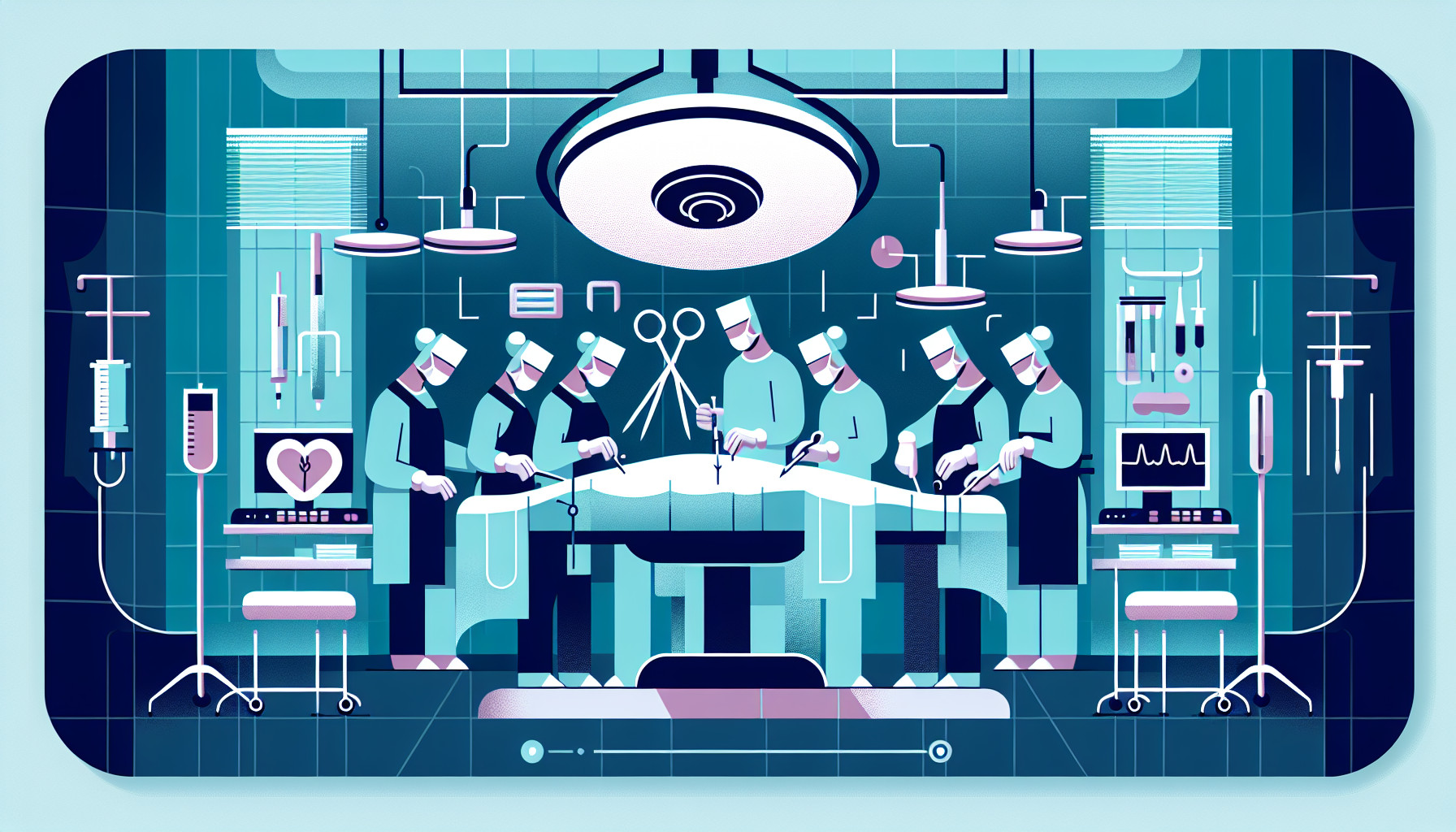Our Summary
This research paper investigates the impact of septoplasty (surgery to correct a deviated septum in the nose) on patients’ non-nasal symptoms and their overall quality of life. The researchers used two types of questionnaires to gather information: one specifically about the disease (SNOT-22) and a general health-related quality of life questionnaire (SF-36v2).
The study involved 50 patients who completed these questionnaires before and six months after their surgery. The results showed that the scores on the disease-specific questionnaire significantly improved for each question and for the total score. This suggests that most patients experienced a positive change in their condition following the surgery.
However, the general quality of life questionnaire showed a significant improvement only in the mental health-related areas (such as mental health, emotional roles, and vitality), but not as much in the physical health-related areas. This suggests that while septoplasty may significantly improve the symptoms related to the condition, its overall impact on a patient’s general physical health may not be as significant.
In simpler terms, patients who undergo septoplasty may see improvements in their nasal symptoms and mental well-being, but this surgery may have less impact on their overall physical health.
FAQs
- What is the purpose of the septoplasty research study mentioned in the article?
- Can septoplasty improve patients’ non-nasal symptoms and overall mental health?
- Does septoplasty have a significant impact on a patient’s general physical health?
Doctor’s Tip
Therefore, a helpful tip a doctor might tell a patient about septoplasty is to have realistic expectations about the outcome of the surgery. While it can greatly improve nasal symptoms and mental well-being, it may not have as much of an impact on overall physical health. It’s important to discuss any concerns or questions with your doctor before undergoing the procedure.
Suitable For
Patients who are typically recommended for septoplasty are those who have a deviated septum that is causing significant symptoms such as nasal obstruction, difficulty breathing, recurrent sinus infections, and snoring. These symptoms can significantly impact a patient’s quality of life and may not be effectively managed with conservative treatments such as medications or nasal sprays.
It is important for patients to undergo a thorough evaluation by an ENT specialist to determine if septoplasty is the best course of treatment for their specific condition. Patients with severe symptoms, recurrent infections, or who have not responded well to other treatments may be good candidates for septoplasty. Additionally, patients who have a deviated septum that is causing other health issues such as sleep apnea may also benefit from this surgery.
Overall, septoplasty is a safe and effective procedure for patients with a deviated septum who are experiencing significant symptoms that impact their quality of life. It is important for patients to discuss their symptoms and treatment options with their healthcare provider to determine if septoplasty is the best course of action for them.
Timeline
Timeline before and after septoplasty:
Before surgery:
- Patients may experience symptoms such as difficulty breathing through the nose, frequent sinus infections, snoring, and sleep apnea.
- Patients may undergo a physical examination and imaging tests to diagnose a deviated septum.
- Patients may discuss treatment options with their healthcare provider, including the possibility of septoplasty.
After surgery:
- Immediately following surgery, patients may experience some pain, swelling, and congestion in the nose.
- Patients will be monitored by medical staff in the recovery room before being discharged.
- Patients will be provided with post-operative instructions for care at home, including managing pain, avoiding certain activities, and cleaning the nasal passages.
- Over the next few weeks, patients may gradually see improvements in their nasal breathing and other symptoms.
- Follow-up appointments with the surgeon will be scheduled to monitor healing and address any concerns.
- Six months after surgery, patients may complete questionnaires to assess the impact of septoplasty on their symptoms and quality of life.
- Patients may continue to see improvements in their nasal symptoms and overall well-being as they recover from septoplasty.
What to Ask Your Doctor
Here are some questions that a patient should consider asking their doctor about septoplasty:
- What are the potential risks and complications associated with septoplasty?
- How long is the recovery period after septoplasty, and what can I expect during this time?
- Will septoplasty completely alleviate my nasal symptoms, or are there other treatments that may be necessary?
- How will septoplasty impact my ability to breathe through my nose and my overall quality of life?
- Are there any lifestyle changes or precautions I should take before or after the surgery?
- How experienced are you in performing septoplasty, and what is your success rate with this procedure?
- Are there any alternative treatments or therapies that I should consider before opting for septoplasty?
- Will I need to follow up with you for post-operative care, and what should I expect during these appointments?
- Can you provide me with any resources or information to help me better understand the procedure and what to expect?
- What are the expected outcomes of septoplasty in terms of improving my nasal symptoms and overall well-being?
Reference
Authors: Medeiros N, Aguiar C, Pina P, Lima NB, Larangeiro J, Condé A. Journal: Iran J Otorhinolaryngol. 2022 May;34(122):163-170. doi: 10.22038/IJORL.2022.59117.3076. PMID: 35655542
